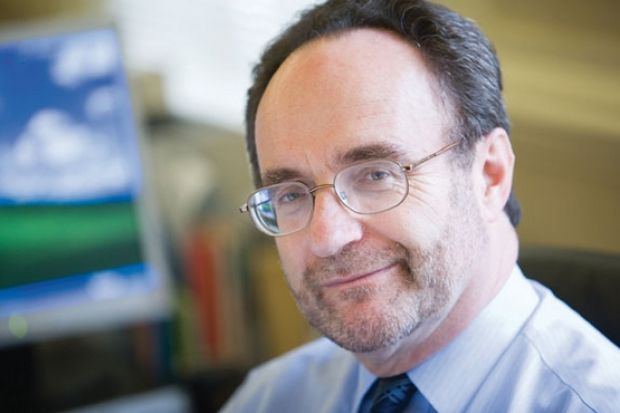Five years ago, many of the heads of the 20 colleges that made up the University of London were questioning its role.
Imperial College London had announced its intention to break away and the university was seen by many as a bloated and bureaucratic body.
But today, as turbulent times loom, the federal university has a renewed sense of purpose, according to its new head.
After major governance reforms and a significant reduction in expenditure, it is in "massively better shape", said Geoffrey Crossick, the former head of Goldsmiths, University of London, who became vice-chancellor in September.
And as budgets are squeezed, he believes London will have "a much bigger role to play" because of the "considerable potential" for its constituent colleges to cut costs by developing more shared services and pooling teaching.
The 19 colleges already make joint use of Senate House library, careers services and student-accommodation services, and collaborate on International Programmes, the university's distance-learning arm.
"We are now heading into a world where there is considerable potential to expand that," he said.
Shared teaching may sound ominous to those wary of jobs being "rationalised", but Professor Crossick said the idea was about strengthening provision in each of the colleges. He sees it as something that would work best at the postgraduate level, but gives the example of an undergraduate degree in design innovation currently offered jointly by Goldsmiths and Queen Mary, University of London.
"Goldsmiths has an outstanding design department, Queen Mary has an outstanding engineering department," he said. "That's real complementarity."
These joint courses make particular sense for the university's specialist institutions, he added, allowing them to combine their strengths and make programmes more attractive to students.
While shared services should not be seen as a "magical solution" to financial problems and can be complex to arrange, the university had not "a head start" but "a lap start" on other institutions owing to the colleges' long-term relationships, he said.
"Of course, people will point to the squabbles that on occasion go on between the colleges...but the reality is that there is a good deal of working trust - people are used to working together," he added.
Colleges would opt in or out of different shared services, allowing them to pick and choose services that meet their needs, he said.
Exit was no shock
Professor Crossick described the departure of Imperial in 2007 as "regrettable", but believed it was more striking to people outside the university. Imperial had been in the unique position for some 50 years of being the only college in the federal body that was directly financed by the government's funding agency rather than through the university, and this meant it had always been "semi-detached".
When he arrived at Goldsmiths in 2005, the University of London did, however, lack confidence. He attributes this to the fundamental shift that took place in 1994 when all its colleges became directly funded. This was a "very radical change" that was "not fully faced up to" in the 1990s. "There was this big central university trying to discharge functions that it didn't necessarily have to," he said.
Ultimately, new governance arrangements, introduced in 2008, meant that the university "finally defined itself properly" as a federation of autonomous institutions that exists to serve the colleges.
He sees no prospect of more colleges leaving in the near future. While some feel that their "brand" does not need the university, all gain some benefits and the overwhelming majority feel goodwill towards it, he said.
The university's International Programmes have been in the spotlight since David Willetts, the universities and science minister, recently took an interest in them. Professor Crossick said this was encouraging, but stressed that discussions were at an early stage.
"I am keen that we should not simply seize any opportunity that happens to arise," he said.
Professor Crossick, a historian and a former chief executive of the Arts and Humanities Research Board (the predecessor of the Arts and Humanities Research Council), said he wanted the university to build much closer links with London's great cultural institutions.
"If we can work more closely with the museums, galleries, libraries and theatres, we can ensure that the public are influenced by the university even more than now. That is a big priority on my agenda."
